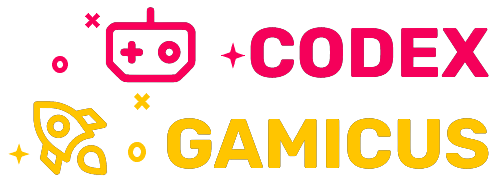An emulator, in the most general sense, duplicates (provide an emulation of) the functionality of one system on a different system by translating calls designed for the target hardware into calls that the host system's software can understand and interpret correctly into an output, so that the software appears to behave identical to the target system. Unlike a simulation, it does not attempt to precisely model the state of the device being emulated; it only attempts to reproduce its behaviour. This behaviour can have differing degrees of accuracy between emulators.
A popular use of emulators is to run software and games, often referred to as ROMs, written for hardware that is no longer sold or readily available, such as the Commodore 64 or early Amiga models. Emulating these on modern desktop computers is usually less cumbersome than relying on the original machine, which may be inoperable. However, software licensing issues may require emulator authors to write original software that duplicates the functionality of the original computer's bootstrap ROM and/or BIOS, often through high-level emulation.
Legality of emulators
Most emulators are perfectly legal under United States and international law, protected by laws that cover reverse engineering. However, emulators can be illegal if they use copyrighted code from the original console, computer, or program.
Legality of ROM images
ROM images are copyrighted code and are protected by international law. The only legal images are homebrew games of original content, created by programmers, images released into public domain, or images downloaded with the permission of the copyright holder.[citation needed]
Common legality myths
- 24-hour rule: Many emulation download sites like to claim that you can keep unlawfully downloaded ROMs for 24 hours and then delete them, and still remain legal. This rule has no basis in law.[citation needed]
- Owning the game: Owning the game in its original form does not make downloading a ROM image of it legal, according to the letter of the law. The only fully legal way is to make a backup image yourself using special hardware. However, this hardware can be expensive and/or complex to create (and illegal sometimes, as is the case of Nintendo ROM image extracting hardware), and many gamers consider it ethically correct to download an image as long as you own the original game.[citation needed]
Console emulators
Arcade
PlayStation
- Bleem!
- ePSXe
- PSXeven
- AndriPSX
- PCSX (No Bios)
- PCSX-Reloaded
- SSSPSX
- Psxjin
- NO$PSX (No Bios)
- hpsx64 (PS1 and PS2) (64-bit)
- Mednafen
PlayStation 2
- PCSX2
- NeutrinoSX2
- PS2emu
- Play!
- hpsx64 (PS1 and PS2) (64-bit)
PlayStation 3
- Rpcs3
PlayStation Portable
- PCSP
- Jpcsp
- Potemkin
- PSPE
- PPSSPP
Super Nintendo Entertainment System
Nintendo Entertainment System
Xbox
Xbox 360
- Xenia
- ex360e (An Experimental Xbox 360 Emulator)
- exbox360 (Also an XBOX 360 emulator in development)
Nintendo Virtual Boy
N64
- Project 64
- 1964
- UltraHLE
- Nemu64
- Mupen64
- Corn
- SuperHLE
- Daedalus
- UltraHLE 2064
- TR64
- Apollo
- TRWin
GameCube
- Dolphin
- Dolwin
- GCEmu
- WhineCube
- Gcube
- Gekko
Wii
Wii U
- [{Cemu]]
Dreamcast
- NullDC
- Chankast
Sega Saturn
Sega Mega Drive/Sega CD
- Genecyst
- KEGA
- Kega Fusion
PC-Engine/TurboGrafx-16
- Magic Engine (No Bios)
- Ootake
- PCEjin (No Bios)
- Mednafen
- MESS
PC-FX
- Magic Engine FX (No Bios)
3DO
Handheld emulators
Game Boy
- VisualBoyAdvance - GB
Game Boy Color
Game Boy Advance
Nintendo DS
- DeSmuME - Nintendo DS
- WinDS - Nintendo DS
- NO$GBA - GBA & Nintendo DS
Nintendo 3DS
- Citra
- 3dmoo
PlayStation Vita
No Documented Emulators
